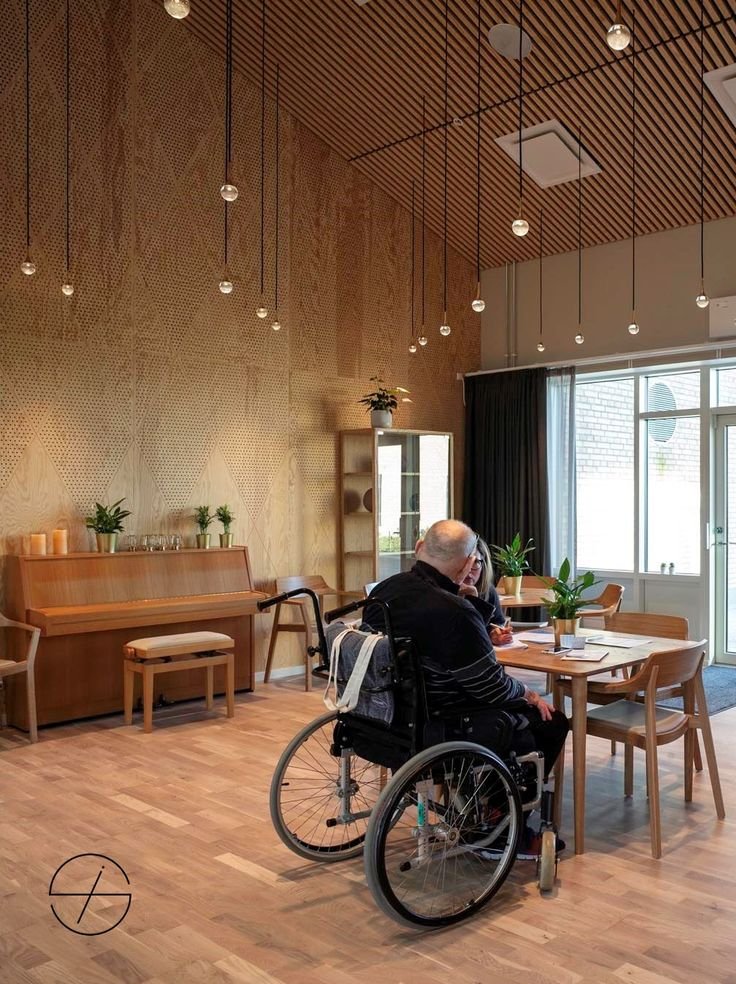Living with a genetic condition can bring unique challenges, but it doesn’t have to prevent you from building a healthy, fulfilling life. With the right mindset, self-care, and support, it’s entirely possible to lead a vibrant and meaningful life despite any genetic predispositions. In this article, we explore some common genetic conditions and their symptoms, followed by practical tips for living well with these conditions.
Identifying Common Genetic Conditions and Their Symptoms
Before going into the strategies, it’s important to be able to determine when you or your child has a genetic condition. While there are many such conditions, we are going to discuss the common ones. Once you perceive any of these symptoms, it’s best to see your doctor for a proper diagnosis.
No. 1
Turner Syndrome
Turner Syndrome is a genetic condition that affects only females and is caused by the complete or partial absence of one of the X chromosomes. Common symptoms include short stature, delayed puberty, infertility, heart defects, and certain learning difficulties. While Turner Syndrome presents lifelong challenges, with the right care, individuals can lead healthy lives.
No. 2
Cystic Fibrosis
Cystic Fibrosis (CF) is a condition that affects the lungs and digestive system due to a defective gene that causes thick, sticky mucus to build up in the organs. Symptoms often include persistent cough, lung infections, and difficulty gaining weight. Advances in treatment have significantly improved the quality of life for people with CF.
No. 3
Sickle Cell Anemia
Sickle Cell Anemia is a blood disorder where red blood cells are shaped like sickles or crescents, which can block blood flow and lead to pain, infections, and fatigue. This condition is inherited, primarily affecting people of African, Mediterranean, or Middle Eastern descent.
No. 4
Huntington’s Disease
Huntington’s Disease is a progressive brain disorder that affects movement, cognition, and emotions. Symptoms usually appear between the ages of 30 and 50 and worsen over time. Although Huntington’s is incurable, you can manage symptoms and live well.
No. 5
Marfan Syndrome
People with Marfan syndrome are often tall and thin with disproportionately long limbs, fingers, and toes. Complications can arise with the heart and blood vessels, so regular monitoring is crucial for managing the condition.
Green Chef
Green Chef offers a variety of meal subscriptions to suit any lifestyle with each thoughtfully curated box bringing convenience and nutrition to any table
How to Build a Healthy, Happy Life Despite Genetic Conditions
No. 1
Prioritize Regular Medical Care
Staying on top of your health is crucial when living with a genetic condition. Frequent medical check-ups and early intervention can help manage symptoms and prevent complications. For example, individuals with Turner Syndrome may need regular heart monitoring, while those with cystic fibrosis benefit from routine lung function tests and airway clearance techniques.
Sickle Cell Anemia patients should maintain a close relationship with their healthcare providers to manage pain and prevent infections.
No. 2
Build a Support Network
Support groups for people living with genetic conditions can offer a sense of community and shared experience. These groups, whether online or in-person, allow individuals to share their challenges, learn from others, and find comfort in knowing they are not alone. Family and friends are also vital in this journey; they’ll have to understand your condition so they can offer the support you need.
No. 3
Stay Physically Active
Exercise can help improve overall well-being, reduce stress, and manage symptoms like fatigue and pain. Low-impact activities like swimming, walking, or yoga are excellent choices for people with conditions that affect mobility or respiratory health, such as cystic fibrosis or Marfan Syndrome. Generally, exercise can make you feel better about yourself due to the release of “feel good” hormones.
No. 4
Prioritize Mental Health
Living with a genetic condition can make you feel down, which makes mental health care just as important as physical health. If you feel depressed or battling social anxiety, please talk to a professional mental health care provider. For those with more progressive conditions like Huntington’s Disease, professional counseling can help you and your family navigate the emotional complexities that come with a changing diagnosis.
No. 5
Eat a Balanced Diet
Eating nutrient-rich foods can improve energy levels, support immune function, and help manage specific symptoms. For example, individuals with cystic fibrosis may need a high-calorie, high-protein diet due to their body’s difficulty absorbing nutrients, while those with Sickle Cell Anemia might benefit from a diet rich in iron to support healthy blood cell production.
No. 6
Focus on What You Can Control
While a genetic condition may impose certain limitations, it’s important to focus on the aspects of your life that you can control. Maintaining a positive mindset, practicing self-care, and focusing on small victories each day can make a big difference in your overall outlook on life. By acknowledging your strengths, you can cultivate resilience and optimism even in the face of challenges.
Takeaways
Living with a genetic condition does not mean you can’t live a full and satisfying life. You can still find joy in everyday life. Take small steps every day toward creating the life you want, and remember that your genetic condition is only one part of your story—it doesn’t define who you are or what you’re capable of achieving.
Looking for Wellness Resources?
Are you looking to enhance your wellness routine? Explore our wellness partners who offer a wide range of resources to support your journey toward holistic living and well-being.


































































































































